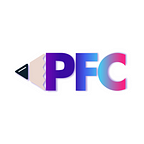How to Rank on Bing vs. Google — People First Content
When you talk about optimizing for SEO, you’re probably talking about ranking on Google. And sure, that’s incredibly important since Google is the #1 search engine in the U.S. market. Ranking on Google means more visibility. It also means other search engines will follow suit, driving more traffic to your site.
But don’t get so caught up in ranking on Google that you forget about those other search engines. After all, Google only makes up two-thirds of the market share. That other third can also help your website get traffic and leads. Knowing how to rank on Bing vs Google can help you get more traffic to your site, leading to higher conversion rates and happier readers.
Why Does Knowing How to Rank on Bing Matter?
Bing makes up nearly 25 percent of the search engine market according to Comscore. Its users are more actively engaged, overall, than Google’s users, which means they’re more likely to convert once they land on your page-but only if they find content that’s relevant to their search query.
How Does Bing Determine What Ranks?
Like Google, Bing wants to give its users the best response to their search query. They have a lot of similarities, like favoring websites with strong backlinks and lots of unique, original content. On the Bing Webmaster Guidelines, in fact, content is at the top of the list.
1. User engagement
Users who land on your site from the search results page and stay on it are considered engaged users. They might click around your site, going from one blog post to another or in between services pages. This shows that the content you’re providing is valuable enough for readers to want to know more.
If you have high “pogo-sticking” (meaning, the user gets to your page, then quickly goes back to the search results page-not unlike “bounce rate” in Google), then this signals that your content isn’t engaging.
2. Click-through rates
If a user clicks on a link on your article or page, then this improves your click-through rate. Getting users to click on links shows that you’re using the right anchor text (which is the text that’s hyperlinked) to tell users what the link they’re about to click on is about. It also demonstrates that you understand what users want. You’re not just writing for keywords.
3. Social signals
Bing relies heavily on social signals from Facebook and Twitter (not so much Google+), much more so than Google does. It makes sense, based on the above criteria. A strong social presence (including likes and shares) shows strong user engagement. It demonstrates that you understand your users and are writing content for them, not just for an algorithm. So, if you have a strong social presence, you’ll likely see your ranking go higher in Bing. It won’t hurt you on Google either.
4. Page authority and backlinks
Backlinks aren’t unimportant in Bing-they’re just less important than page authority. Bing encourages websites to include relevant backlinks (like Google, they don’t want to see spammy links) with appropriate anchor text that accurately alerts readers to what they’re going to be clicking on.
But, more importantly, Bing wants to see page authority. It’s hard for a new domain to rank on Bing, but over time, it becomes easier. One way to get page authority is to have relevant, quality backlinks added over time. This indicates that your content is useful to reputable websites and that it is information that’s helpful over the long term. You’re not just in it for short-term gains.
5. On-page SEO
Just like with Google, you need to have optimized meta descriptions, titles, title tags, H1s, and H2s. In fact, Bing is more focused on having exact keywords and keyphrases than Google. You’re better off trying to rank for just one query on a Bing page than a bunch. Make sure you have just one H1, and then use H2s and H3s as headings and subheadings. Bing will sometimes replace your metadescription with your H1, so that’s something to keep in mind when you’re writing it.
Bottom Line
These tips can help you optimize your site for Bing. The great thing about them is they won’t hurt your chances for ranking on Google. In fact, they might even help! As long as your creating content that is useful and relevant for your target audience, you’re most of the way there.
If you need help creating content, let us know! We’re here to help businesses of all sizes develop a content strategy and create content that will actively engage their users.
Originally published at https://www.peoplefirstcontent.com on December 10, 2022.
